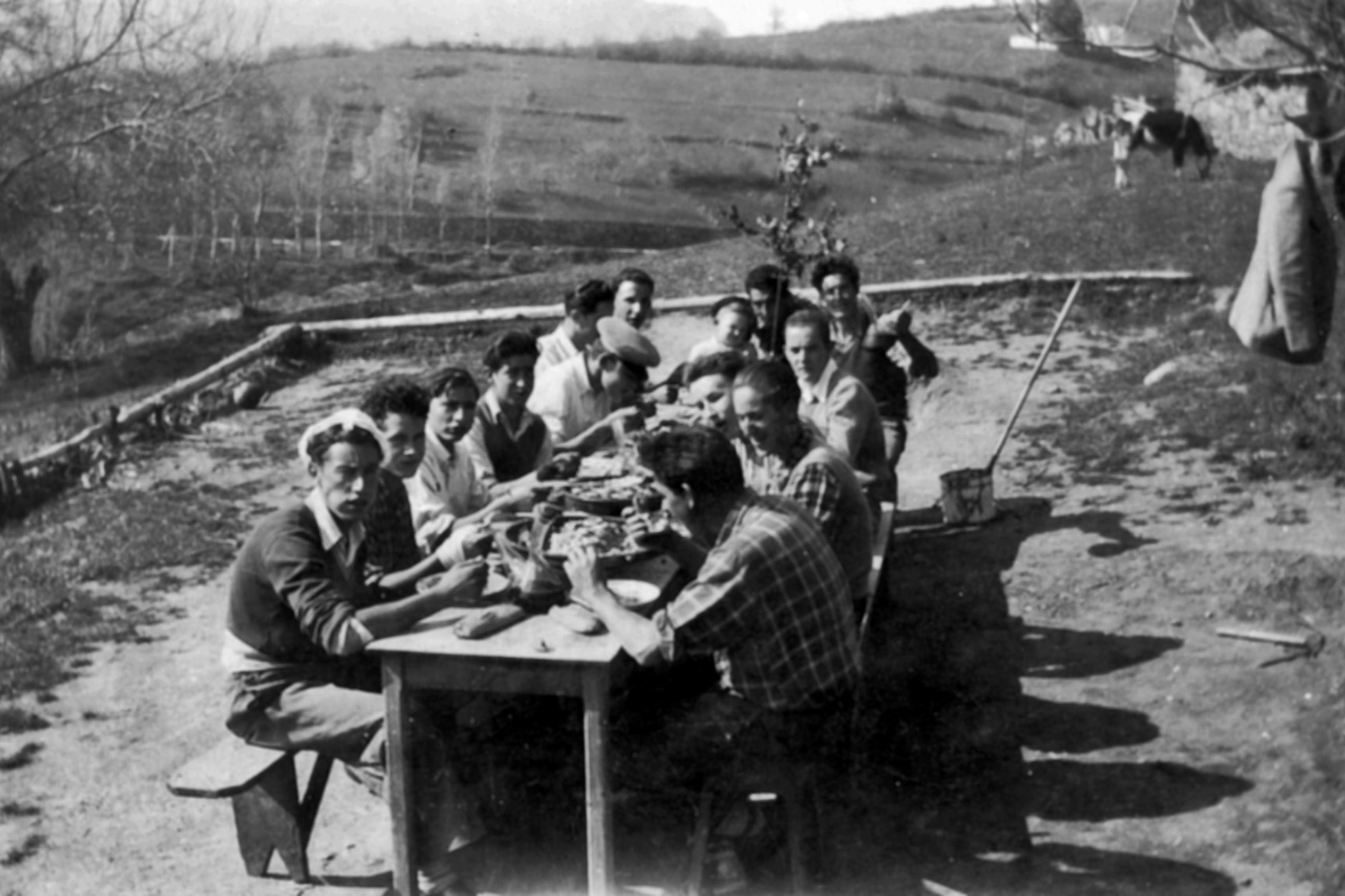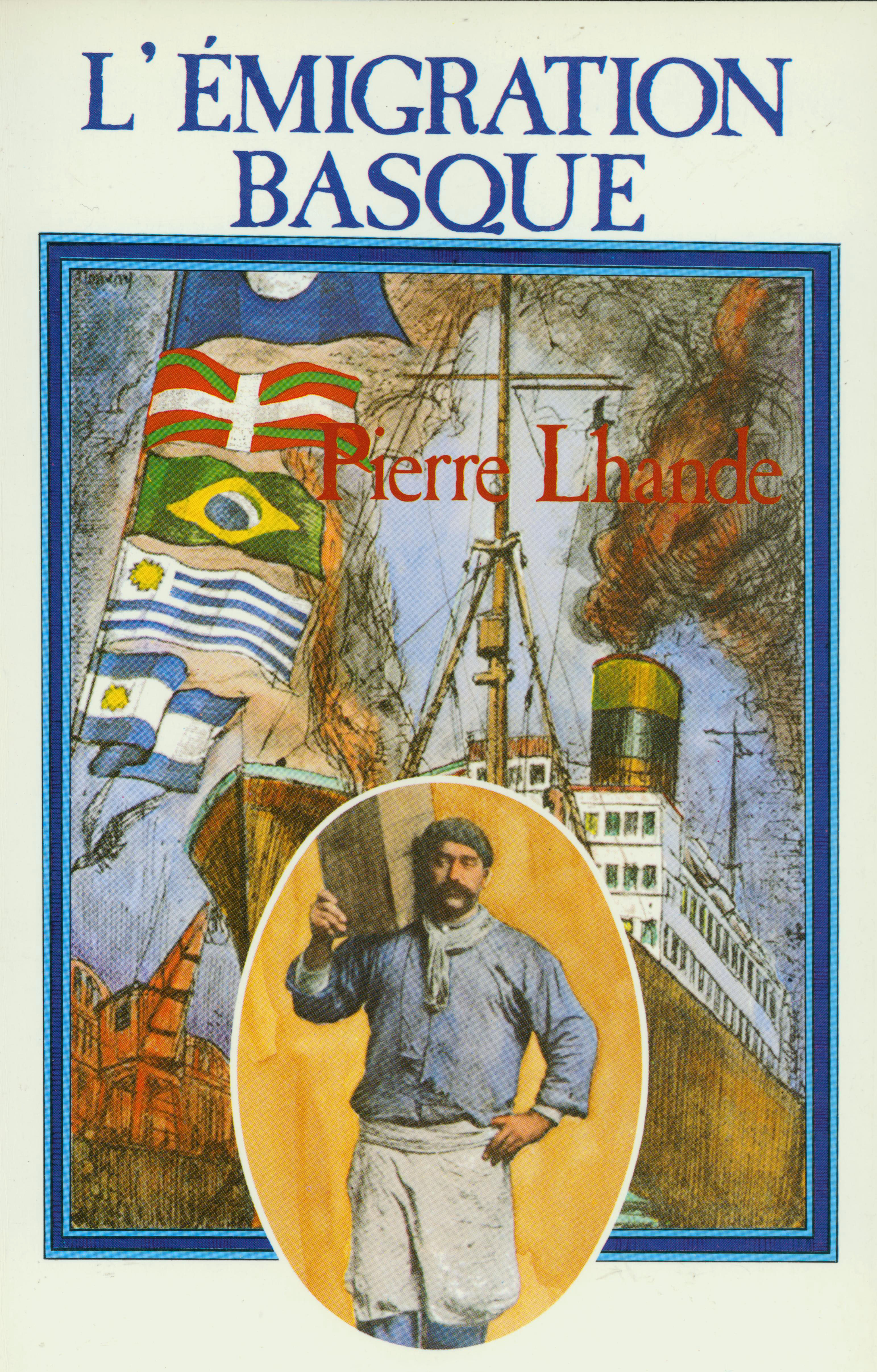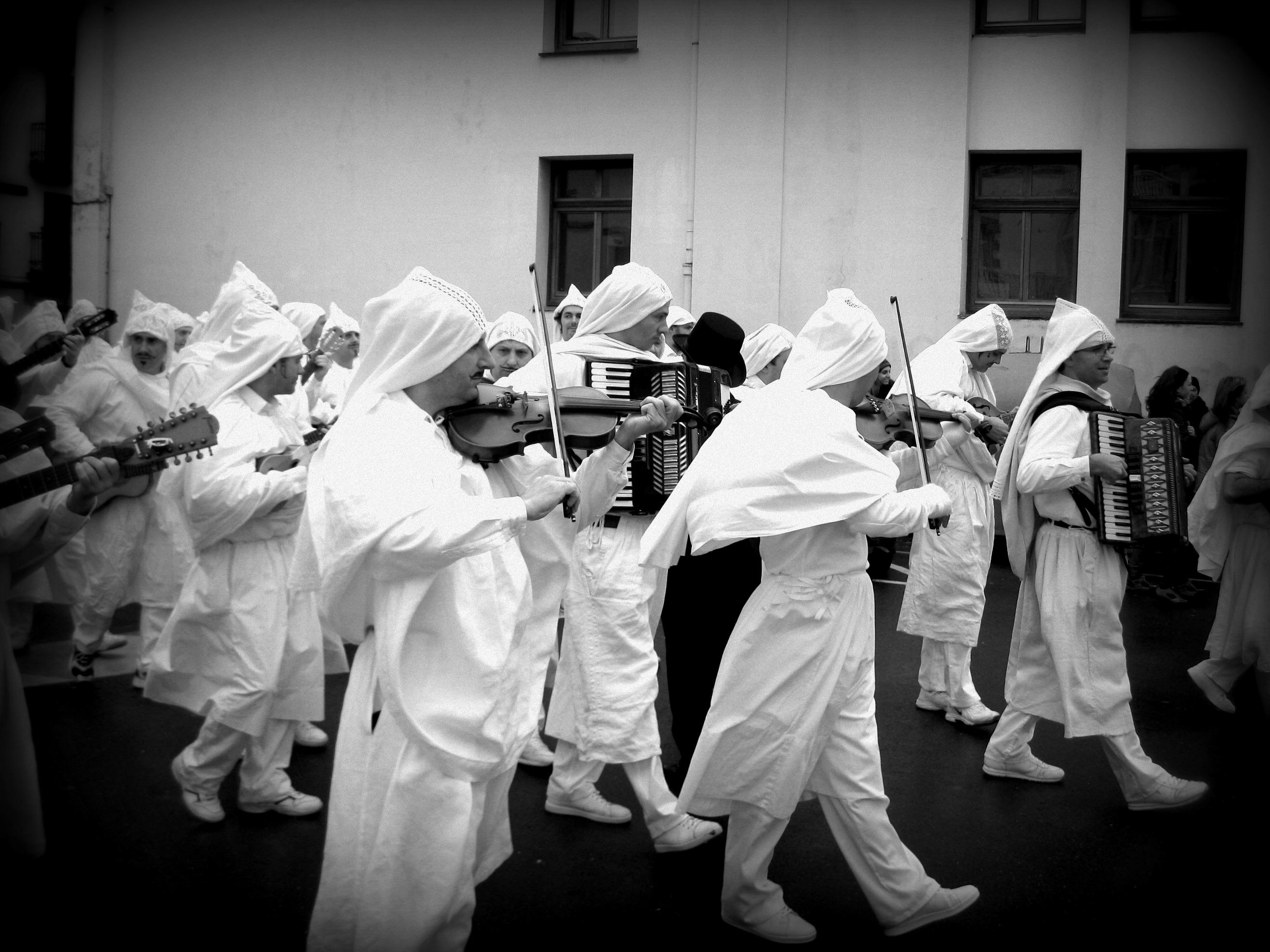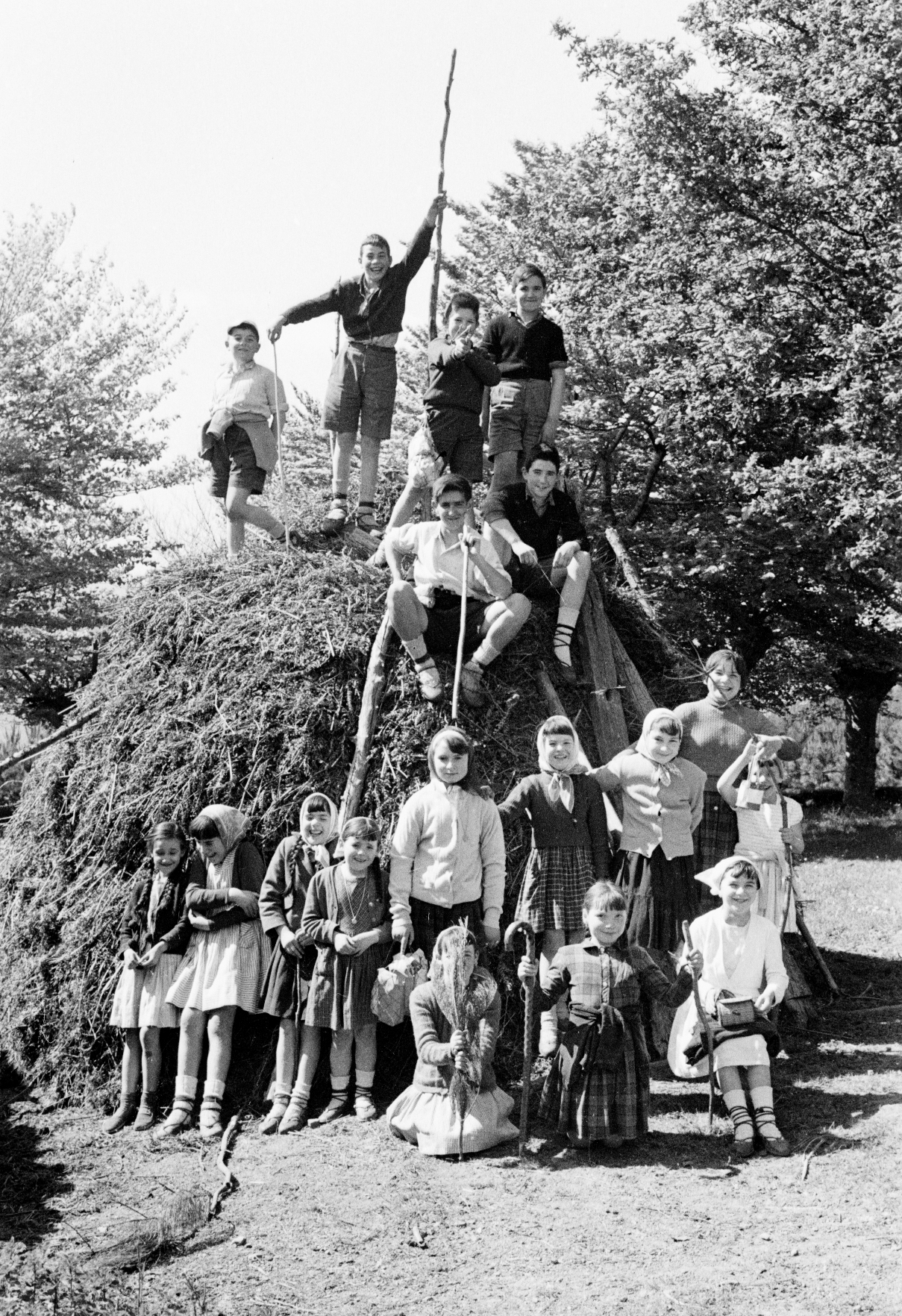Basque ethnography at a glance

Group of lads from Biáñez Council celebrating a banquet, 1947. Julián Ahedo.
The Marzas or songs sung to welcome in the spring had in times past a strong root in the Carranza Valley. It is a pagan festival whose origins date back to time immemorial and which Julio Caro Baroja related to the beginning of the Roman year. Traditionally, on 1 March young male singers, called marceros, gathered in groups of four to eight sang the Marzas house to house and neighbourhood to neighbourhood. Dressed in daily clothes, they made their way to the sound of cowbells and bell collars. Along with them walked the zarramasquero, responsible for carrying the zarramasco, a holly branch decorated with coloured paper strips. He stood out from his fellow singers by two crossed sheep manes he wore on his chest and back held with bell straps and several cowbells at the waist that sounded as he jumped during the singing. Occasionally his face was covered with a mask made of animal skin. (more…)
In the past ferns had a great variety of uses. The common bracken, Pteridium aquilinum, a fern species familiar to us all, has tradionally been used for animal bedding in stables. It was harvested in the autumn, when brown, and stored while it was dry. There were different storage methods, stacks of fern, known as ira-metak in the Basque-speaking area of the territory, among others. (more…)

The first edition was published in Paris in 1910. Euskal Biblioteka. Labayru Fundazioa.
The first great migration of Basque people to America took place in the 16th and 17th centuries following its discovery. Let us just mention the names of two notable Basque men, Juan de Garay and Bruno Mauricio de Zabala, founders of Buenos Aires and Montevideo respectively. (more…)

Atorrak, Mundaka (Bizkaia), 2011. Labayru Fundazioa Photographic Archive.
In olden times indulging in carnival celebrations when Lent observance is in full flow would have been totally unacceptable and considered serious misconduct. Nowadays, though, in some localities carnival events are postponed to the weekend after Shrove Tuesday. (more…)


